| Newer Posts |
Yes, mortgages are still available |
|
In talking to people in Harrisonburg and around the state lately, I have heard several people comment about how it is now near impossible to obtain a mortgage to buy a home. This has not been my experience --- I am still seeing most (reasonably qualified) buyers having no problem obtaining a mortgage. A few caveats:
If you are considering buying, don't be scared off by a concern that mortgages are not available. In fact --- in addition to mortgages being available, 30-year fixed rates are very low right now! | |
Mortgage rates are down --- if you're buying, lock in now! |
|
If you have been holding off to lock in an interest rate on your purchase or re-finance, now may be the time! In a report released by Freddie Mac last Friday (9/12/2008), 30-year fixed-rate mortgages now average at 5.93%. That is a significant drop from the prior week's average of 6.35%. Yes, rates could go lower, but we're below 6% again --- which I hadn't thought we'd see for quite a while. If you have any questions, please e-mail me (scott@cbfunkhouser.com) or call me (540-578-0102). I'd be happy to talk things through with you, or to connect you with a qualified lender. | |
Price Points: estimating housing payments... |
|
I often have conversations with people considering their first home purchase who want to first get an idea of how much they would have to pay for housing on a monthly basis. I have devised an Excel mortgage calculator that I can use to give them a rough idea, or I recommend that they call a lender to get pre-approved. | |
Getting Ready To Buy -- Loan Pre-qualification |
|
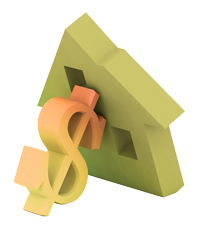 In almost all circumstances, buyers should pre-qualify for a mortgage before starting to look for a home. In almost all circumstances, buyers should pre-qualify for a mortgage before starting to look for a home.What is pre-qualification? In short, it means providing basic financial information to a lender so they can give you a preliminary indication of how much money they are willing to lend you for the purchase of a home. What is a lender? A lender can be either a bank, a mortgage company, or a mortgage broker. A bank offers banking services and accounts as well as offering loans. A mortgage company is just in the business of making loans. A mortgage broker contacts multiple "funding sources" on behalf of a home buyer to find the best loan. How hard is it to get "pre-qualified"? It is not difficult at all --- in fact, it can be done over the phone in about 30 minutes. Alternatively, you can set up an appointment with a lender to get "pre-qualified." What is the lender doing when they pre-qualify me? They will be inquiring as to your income, expenses, assets and liabilities. How much do you make per month from your job, and any other income sources? What monthly payments do you already have, such as a car loan, or credit card payments? What other assets do you own, such as a car, boat, additional residence, etc? What other debt do you have, such as another mortgage, personal loans, etc? After having collected this information, they will look at your credit score, and your "debt ratios". What is a "debt ratio"? This is a comparison of your potential monthly housing costs and your monthly income. Some programs, for example, don't like to see more than 28% of your gross monthly income going towards housing expenses. What is the difference between "pre-qualified" and "pre-approved"? This varies from lender to lender, but my general understanding of the distinction is that a pre-approval involves submitting all of your information to an "automated underwriting program" to be able to give you a Fannie Mae or Freddie Mac pre-approval. Why should I pre-qualify first? Having been pre-qualified for a mortgage gives you a realistic idea of how much of a mortgage you can obtain, or want to obtain. This will guide us as we set your home search criteria, so that we are not considering homes that would not be possible for you to purchase. There might be a difference between what I can get, and what I want to get? Absolutely! I have frequently run into situations where a lender will tell my client that they can borrow an amount that would lead to a monthly payment that the borrower is not at all comfortable making. Sometimes the limit is set by the limit from the lender, and sometimes the limit is set by the comfort level of the borrower. How many lenders should I talk to? To start, just talk to one lender to get a general idea of how much money you can borrow for your home purchase. Then, when we have found a home for you to purchase, you can check with multiple lenders to make sure you are getting the best loan terms (interest rate, closing costs, etc). There are likely tens or hundreds of other questions that I could have addressed here. Feel free to ask other questions in the comments of this post, or by e-mailing me at scott@cbfunkhouser.com. I am not a lender myself, but I have become quite familiar with the lending process through assisting many real estate clients in analyzing mortgage options over the years. | |
Change Is Here . . . We Must Adapt! |
|
Slower Home Sales . . . Fewer Mortgage Options . . . Appreciation Remains, But . . . | |
The Best of Lenders, The Worst of Lenders |
|
 After (just about) five years in real estate, and many transactions with many lenders, I have finally discovered that with the best of lenders, and with the worst of lenders, the experience for my clients can still be fantastic, or terrible! After (just about) five years in real estate, and many transactions with many lenders, I have finally discovered that with the best of lenders, and with the worst of lenders, the experience for my clients can still be fantastic, or terrible!The root of the problem is the many variables involved with a loan, for example:
Scenario #1 --- $300k (+/-) purchase, 80% financing, loan application to closing in approximately 14 days, absolutely no issues in the entire process. Amazing! Scenario #2 --- $100k (+/-) purchase, 100% financing, down payment assistance program, loan application to closing in approximately 35 days (even though 21 was promised), an absolute nightmare with more and more, and more documentation and paperwork requested from the loan underwriter and loan closer up until the closing day. Many of my buyer clients ask for recommendations on which lender they should select in order to make it a smooth and successful purchase. I do indeed have lenders that I recommend. However --- even with one of the stellar lenders I recommend, a buyer can have a terrible financing process, as a result of the underwriter, closer, appraiser, program requirements, etc. And . . . even if you don't select one of the lenders that I recommend, you can absolutely have a fantastic financing process. | |
100% Financing (and then some) From A Local Lender |
|
A few weeks ago I was lamenting the fact that 100% finance seemed to be sailing out to sea --- never to be available again for first-time buyers (or otherwise).  However, just this past week, Debbie Huntley at SunTrust Mortgage informed me of quite a few 100% (plus) financing programs that are indeed still available . . . Lender Paid Mortgage Insurance --- 100% Financing
VHDA/FHA/PLUS --- 102.75% Financing
80/15/5 COMBO Loan
So, fear not --- even if you don't have a down payment (or even closing costs), if you have good credit and steady income, you are likely to be able to obtain 100% financing after all! | |
Who Pays The Closing Costs? |
|
 Some buyers make offers including a condition that the seller pay all or some of the closing costs. Some buyers make offers including a condition that the seller pay all or some of the closing costs.Some sellers offer the incentive of seller-paid closing costs to try to entice buyers. What's really going on here? There are a few ways to look at it:
| |
PMI -- Is It Good, or Evil?? |
|
I am frequently asked whether PMI (private mortgage insurance) is a good thing, or something to avoid. To start with --- private mortgage insurance is an insurance policy that protects the lender in the event that a borrower stops making payments, the lender has to foreclose, and they can't recoup all of their costs. Despite the fact that the lender is the beneficiary of the insurance policy . . . you guessed it, the borrower gets to pay for the policy! PMI is required (by most lenders) for any mortgage where the loan-to-value ratio is greater than 80%. In other words --- if you have less than a 20% down payment, you will likely have to pay PMI. PMI is typically paid on a monthly basis --- with every mortgage payment. However, with most lenders, you can avoid paying PMI by paying a slightly higher interest rate. Don't be fooled --- the intent and result are essentially the same. When a borrower has to finance more than 80% of the purchase price, a lender is a bit more worried about their future ability and likelihood to repay than if they are financing 80% or less. The lender mitigates this risk by taking out an insurance policy, and having the borrower pay for it. The policy can either be paid for (by the borrower) each month, or up front. Thus the option of either paying every month, or over the life of the loan (in the form of a slightly higher interest rate). I suggest that most of my clients pay the PMI each month. Typically, the monthly payments are about the same regardless of whether you pay PMI each month (with a lower rate), or do not pay PMI (and have a higher rate). So . . .
One final note --- if you have monthly PMI costs, at some point you will want to have that part of your payment removed. Before you hire an appraiser to appraise the property and prove that your loan balance is less than 80% of the appraised value, check with your bank on their process. Many banks have a list of appraisers that are acceptable for this process, and some banks insist that they generate the appraisal request. | |
Hint: Avoid Loan Froad |
|
 What exactly is "loan fraud," or "mortgage fraud"? What exactly is "loan fraud," or "mortgage fraud"?A few examples, per the FBI are:
The long and the short of it --- don't participate in loan fraud --- it is a criminal act. | |
Deciding To Refinance |
|
Mortgage interest rates have continued to decrease over the past year (much to my surprise). Once again, some homeowners are wondering whether it might make sense for them to refinance. While there are many factors to consider when making such a decision, here's one way perspective that might help you decide whether to proceed . . . The theory: With the assumption that you are not trying to pull out equity via a refinance, you need to determine how long it will take for the monthly cost savings (with a lower interest rate) to exceed the cost of refinancing. How it works out: You bought a $300,000 house three years ago for $300,000 with a $50,000 downpayment. Thus, the original loan was for $250,000 --- but the balance is now down to $240,000. The interest rate on the loan is 6.25%, which made the principal and interest payment $1,539 per month. Today's rate of 5.625% looks good to you, but the closing costs will be $3,500 -- which you would have to finance because of your current cash flow situation. The new loan would be $243,500 (old balance + closing costs), financed at 5.625% over 30 years, which makes the new principal and interest payment $1,402 per month. When it makes sense: In the scenario above, many people would immediately jump at the opportunity to save $137 per month ($1,539 - $1,402). However, bear in mind that it will take 26 months for the monthly savings to pay off. That is to say that since you paid $3,500 of closing costs in order to refinance, it won't be until the 26th month ($3,500 / $137) that you actually see a net gain for your decision. Thus, in this scenario, if you know you were going to stay at least two years, it would make sense to refinance --- but not if you thought it was likely that you would sell sooner. Your scenario: There may be more variables in your situation than I mentioned above. Perhaps there is a second mortgage with a variable rate, for example. I'd be happy to help you with calculating when it would make sense to refinance, or you can contact a lender to get a similar analysis. Just remember --- even if you are lowering your rate, it doesn't always make sense to refinance! | |
"The Fed" Lowers Rates Yet Again! |
|
Yesterday "The Fed," or The Federal Reserve, lowered the federal funds rate by 0.75% --- from 4.25% down to 3.50%. Generally speaking, reducing this rate leads to more economic activity, as it lowers the interest rate for money loaned between banks overnight. 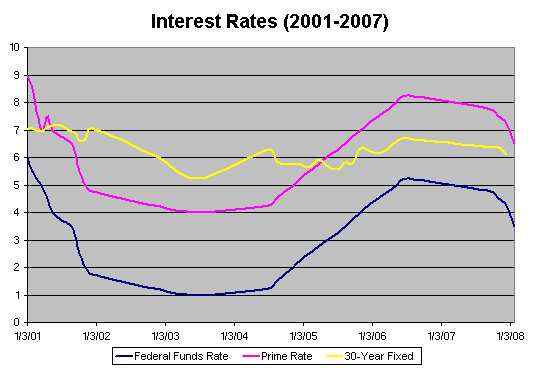 What will it mean for real estate in Harrisonburg and Rockingham County? First, it is important to realize that a 0.75% decrease in the federal funds rate will not equate to a 0.75% reduction in interest rates that home buyers will obtain for their real estate purchases. However -- for most home equity lines, homeowners will see a reduction in their payment as the prime rate decreases. | |
The Changing Mortgage Market |
|
80/20 mortgages with a second mortgage covering the 20% down payment . . . adjustable rate mortgages to provide lower interest rates and payments . . . interest only mortgages to lower monthly payments even further . . . step-up mortgages with lower introductory rates . . . sub-prime mortgages for poor credit or high risk borrowers. This loosening of lending standards has led to an increase in mortgage delinquencies, and as indicated by the graph above, most of this increase has been with subprime borrowers. However, these recent changes in the mortgage market affect all borrowers: fewer programs, for example the disappearance (largely) of 80/20 loans . . . increased standards such as credit scores, cash reserves, debt limits . . . increased scrutiny in the underwriting process, delaying closings . . . Understanding these trends in the mortgage market will help you to make more educated decisions about when to buy, and how to fi nance your purchase. | |
| Newer Posts |
Scott Rogers
Funkhouser Real
Estate Group
540-578-0102
scott@funkhousergroup.com
Licensed in the
Commonwealth of Virginia
Home Search
Housing Market Report
Harrisonburg Townhouses
Walk Through This Home
Investment Properties
Harrisonburg Foreclosures
Property Transfers
New Listings

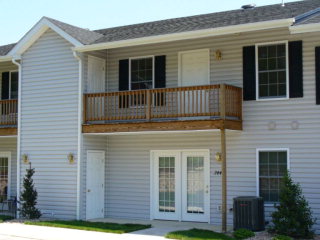
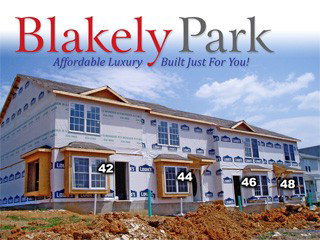
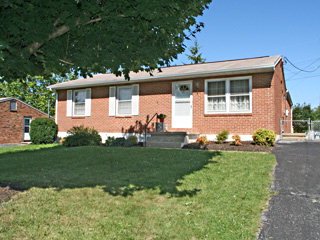
 There are quite a few local and national changes occurring right now that greatly affect buyers and sellers. Let's contemplate how we must prepare and adjust.
There are quite a few local and national changes occurring right now that greatly affect buyers and sellers. Let's contemplate how we must prepare and adjust. 